Researchers at investment firm PiperJaffray on Tuesday delved into several uncertainties regarding Apple Inc's new iPhone handset, ranging from the economics of the Cingular/Apple partnership to the device's addressable market.
What Are The Economics Between Apple and Cingular?
While both Apple and Cingular are sharing only a limited amount of detail regarding the deal between the companies, we can confirm several elements of the relationship. Every iPhone customer will need to sign a two-year contract with Cingular regardless of whether they buy it from Apple or Cingular. Mike Walkley, Sr. Research Analyst covering the Mobile space for Piper Jaffray, doesn't believe Cingular will subsidize the handset. By maintaining a high price point Apple will avoid the tarnished image Motorola recently has suffered due to dropping RAZR prices. Motorola cut RAZR prices to ~$50 with carrier subsidies and rolled out the KRZR as the premium handset in its place. But due to the significant savings for the RAZR, the KRZR model sold significantly fewer units than expected. Secondly, Apple cannot allow Cingular to subsidize handsets sold only through Cingular stores, which would cannibalize Apple Retail Store sales. However, it is possible for Cingular to reduce overall iPhone costs by reducing service fees and offering discounts to iPhone customers, whether they purchase the phone at an Apple Store or a Cingular store.
Cingular benefits from the added subscribers and press surrounding the device, while Apple benefits from the largest U.S. carrier as an initial market for the device. We believe the Cingular will be aggressively attracting new subscribers during the launch of the iPhone by reducing service fees and announcing discounts to iPhone customers. Of note also is the fact that by partnering with Cingular, Apple does not need to be involved with any billing or subscriptions for wireless users. Cingular has confirmed that there is no revenue sharing plan in place from added iTunes Store users because of the iPhone. Cingular has also confirmed that there will be no Cingular branding on the iPhone, other than the wireless provider's name in the corner of the screen where the signal strength is displayed. The key takeaway for Cingular in the relationship is the addition of customers who will likely be significant users of margin-enhancing value-added services for the operator.
How Much Does It Cost To Switch Carriers?
Since the iPhone will be sold exclusively to Cingular wireless subscribers, consumers with other U.S. providers will need to switch to Cingular in order to use the iPhone. The average contract length is two years, meaning that about 25% of other wireless customers' contracts will expire in the next six months (between now and June). Unless consumers wait until their contract expires, they will need to cancel their contract for between $175-$200. Contract cancellation fees for major U.S. providers are as follows: Sprint $200, T-Mobile $200, and Verizon $175. In addition to canceling a subscription, potential iPhone users may have to subscribe to an EDGE data plan (between $19.99-$44.99) and pay Cingular's activation fee ($36). But we believe Cingular will mitigate this barrier to adoption by offering a lower priced iPhone service package. In a worst-case scenario, the switch could cost as much as $236 plus the cost of the iPhone ($499 or $599) plus monthly voice and data service (as low as $78 together). In this case, the total added cost of switching from a similar device on another provider before the contract is up would be about $736 for the 4GB model and $836 for the 8GB model. While we see this as a very high price point, we feel this is indeed a worst-case scenario and that Cingular will offer discounts on service to iPhone customers.
Will There Be Widespread Enterprise Adoption Of The iPhone?
If a given company is already under contract with Cingular's Business Division, it is easy for them to add the iPhone to the list of handsets available to employees. However, the iPhone is significantly more expensive than the cheapest BlackBerry handsets, and we don't believe businesses will pay a premium for the added media features. So while we do not anticipate widespread enterprise adoption of the iPhone, we also believe that most employees carry a personal mobile phone as well as their company email device (as well as an iPod) and these users will be candidates to simplify from three devices to two by switching to the iPhone.
Will The iPhone Be Available Through Other Carriers?
Apple and Cingular have inked a multi-year exclusive contract for the iPhone. However, it is unclear whether this deal applies to this iPhone model only or all future models released throughout the duration of the contract. We believe Apple will release new iPhone models quickly (as the company has with the iPod) and these devices will eventually be open to other wireless carriers, possibly even before the Cingular contract expires. With this expansion to other carriers comes expansion of the addressable market beyond Cingular's 58m subscribers. Certainly Apple will use other carriers abroad; the company indicated that it plans to expand iPhone distribution to Europe in the Q4 of FY07 quarter and to Asia in FY08. Apple will need to develop other versions of the iPhone for these markets (CDMA, etc.), which the company will likely also sell to other U.S. wireless carriers just after or even before the exclusive deal with Cingular ends.
How Quickly Will The Price Of The iPhone Decrease?
Industry trends show that handset prices decrease quickly. At launch the Motorola RAZR retailed for about $500 and one year later the price had decreased 50% to $250 (note: prices listed do not include rebates or subsidies). And while we feel the price will decrease with time and with future models (as Apple has indicated), we don't feel the price decline curve of the RAZR is an accurate measurement. It is more likely that the iPhone will approach the $399 mark and future models will address more price-sensitive markets.
What Are The Gross Margins Of The iPhone?
We believe that Apple timed its entrance into the handset market with precision. While iPod margins are decreasing, our analysis of Palm's Treo devices indicates about a 30% margin, which we also believe is an accurate estimation for the first iPhone models longer term, but likely the initial iPhone model has a greater than 30% gross margin.
What Is The Addressable Market For The iPhone?
Since Cingular has exclusive rights to the first iPhone model, the broadest addressable market is Cingular's 58m subscribers. However, only about 10% (5.8m) of those subscribers have phones >$300. But we estimate that nearly 30% (14m) of Cingular's subscribers have iPods. Assuming 30% of Cingular's subscribers own an iPod, then we estimate that of those 14m iPod owners, about 60% (8.4m) are likely candidates for the iPhone. This population of likely iPhone customers is roughly in line with Apple's own target to sell 10m units in the first year. But as more models are released, and these models are sold through other carriers, this addressable market grows significantly. According to IDC estimates, there were 201.4m wireless subscribers in the U.S. and 1.8b worldwide by the end of 2006. Of the 201.4m wireless customers in the U.S. we estimate that roughly 20m use phones that cost >$300 and about 50m own iPods. Broken down by provider: Verizon Wireless (57m), Sprint PCS (53.7m), and T-Mobile (27.5m), these companies represent an additional 138.2m, but in order to access these markets Apple will need to develop a CDMA version of the iPhone.
Why Doesn't The iPhone Support The 3G Wireless Standard?
The only glaring shortcoming of the iPhone is its over-the-air wireless standard (EDGE) rather than the faster 3G technology. But because of the iPhone's other functionality (including WiFi), we believe Apple was forced to decide not to use the 3G standard in order to keep the price down. We estimate that a 3G-based iPhone would cost an additional $100. Eventually, however, we believe Apple will reap the benefits of economies of scale and favorable component markets and release a 3G model.
The inclusion of WiFi, however, is a surprising move on Apple's part. While WiFi phones are common in Europe, they are less common in the US. The European mobile market is controlled primarily by the retail channels, which drives handset feature innovation and competition. In the US, however, the carriers control the market, which leads to handset makers including over-the-air wireless radios (like 3G and EDGE, which require data plans from the carriers) rather than WiFi radios, which enable users to access the Internet via pre-existing WiFi hotspots. Moreover, US carriers try to limit WiFi features in handsets due to the threat of cheaper Skype and other VoIP (Voice Over IP) communications solutions.
 AppleInsider Staff
AppleInsider Staff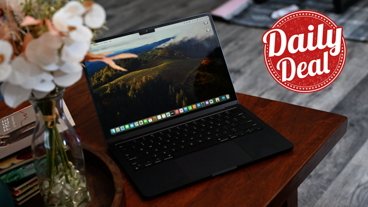
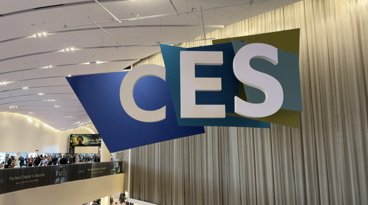
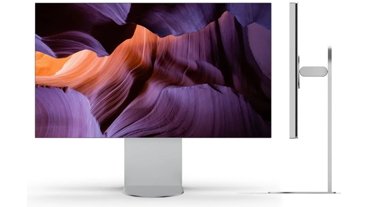
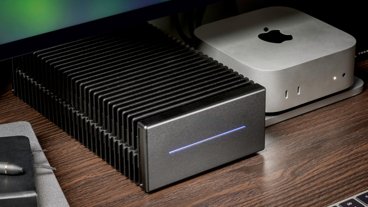
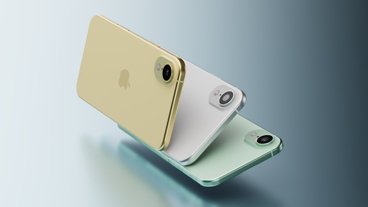
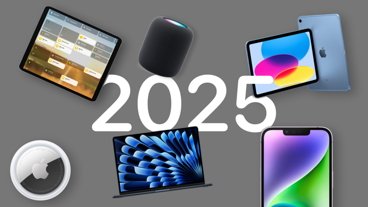
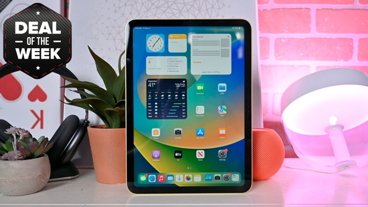
-m.jpg)





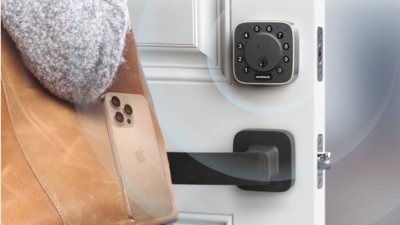
 Andrew O'Hara
Andrew O'Hara
 Charles Martin
Charles Martin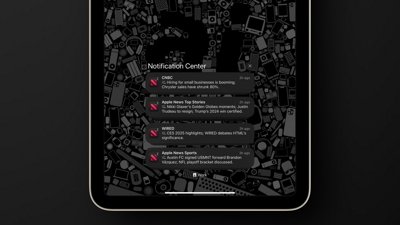
 Wesley Hilliard
Wesley Hilliard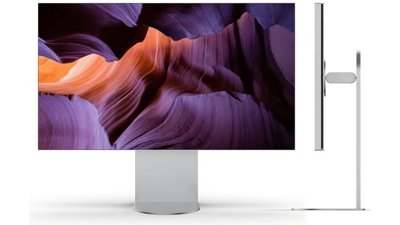
 Malcolm Owen
Malcolm Owen
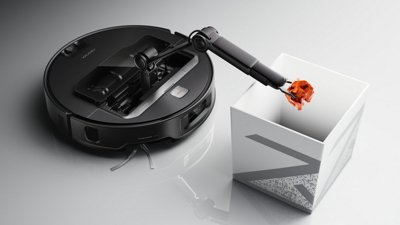
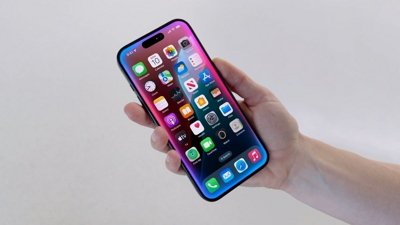
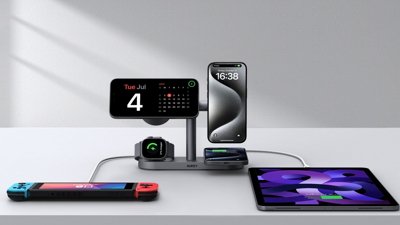
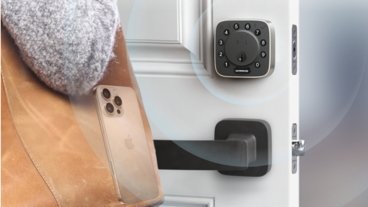
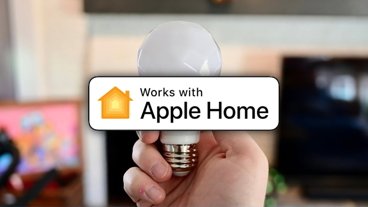





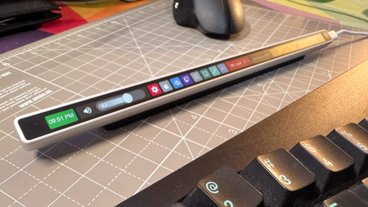

18 Comments
Just wanted the thrill of being first. Nothing much to say..... sorry.
The report says: "Cingular has confirmed that there is no revenue sharing plan in place from added iTunes Store users because of the iPhone."
Meaning what? We might be able to download directly (wirelessly) from iTunes?
The report says: "Cingular has confirmed that there is no revenue sharing plan in place from added iTunes Store users because of the iPhone."
Meaning what? We might be able to download directly (wirelessly) from iTunes?
No. This was speculation among some that Cingular/AT&T would be getting a cut of iTunes revenue because of the supposed increased customer base. But iTunes installed base is much larger than the total iPhone market, and iPhone customers are likely to already have iTunes installed.
It was silly speculation by uninformed, unthinking analysts.
One of the things I really want to be allowed to do with our iPhone(s) is use voice iChat when in WiFi hotspots. What I'm hoping is that the relationship between Apple and AT&T (nee Cingular, nee BellSouth, nee AT&T) is unfriendly enough that Apple doesn't feel beholden to them to cripple the iPhone. Hopefully, AT&T will be happy enough with a few million more subscribers, and won't try to nickel and dime and silver dollar us to use the thing they want us to, rather than the way we want to.
Personally, I hate our money-grubbing mobile system here in the US. How much better would our networks be if all carriers used the same standard, instead of however many overlapping but incompatible standards we have now? Nothing but blatant attempts to limit consumer choice by locking us into a certain type of technology.
My bet is that the iPhone sells much better in Europe and Japan. They'll probably sell them unlocked there, untied to any specific carrier. If they did tie it to a specific carrier, that would be trying to import a backward American model onto something much better for consumers, strangling the thing at birth.
O
My bet is that the iPhone sells much better in Europe and Japan. They'll probably sell them unlocked there, untied to any specific carrier. If they did tie it to a specific carrier, that would be trying to import a backward American model onto something much better for consumers, strangling the thing at birth.
Probably you're right, but apple will have to do better and add 3G. Look at the Nokia N95, now selling for around ?690, that is around 890 US Dollars. It has 3.5G, 5 megapixel camera (and video), Carl Zeiss lens, and a mini memory card slot (upto 2 Gigs), and WiFi...and GPS!
Price point for the iPhone seems right for the European market but they will have to add 3G to convince PC users.
PS : check out the Vista poll at CNET, quite funny.